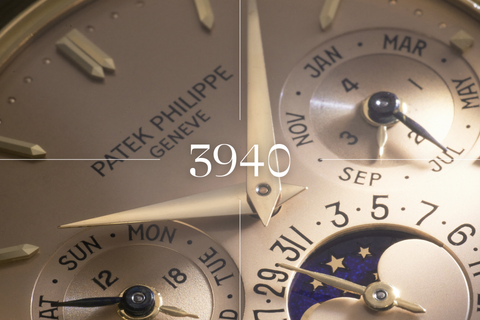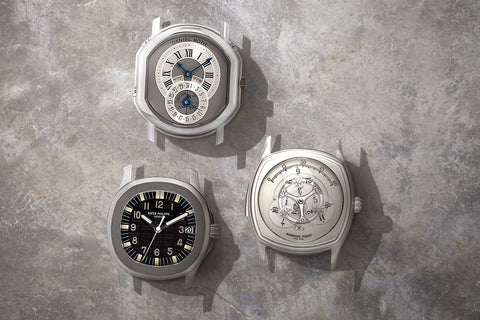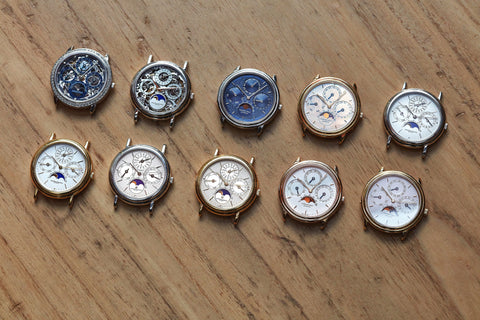Created in the mid-80s, this Patek Philippe reference 3940G* has endured through the years to become a highly coveted collector's piece today. This example features a dial with German indications for the days and months, alongside the typical balanced layout, svelte profile, and classic look that has come to characterise the reference.
A WATCH FOR MODERNITY
To introduce the reference 3940 in 1985 was a rather audacious move.
Swiss watch industry was still feeling the effects of not only the Quartz crisis, but also a global economic downturn which resulted in massive downsizing for many watch brands, with some pivoting towards this new technology and some having to fold altogether. But rather than follow the wind, Philippe Stern decided instead to double-down on the brand’s heritage by creating a pair of complicated references: the 3940 and its sister, the perpetual calendar chronograph reference 3970. Rather significantly, the two references essentially kick-started the serial production of complicated Patek Philippe watches. A rather daring step, considering most of the industry was moving away from tradition, rather than embracing it. As Sean Song, a vintage watch dealer and collector puts it,




“It marked a return for high end watch brands. At the moment, I think the 3940 is more important to Patek Philippe themselves than to collectors, as they know just how significant this release was for the continuity of their brand.”
Prior to these, complicated watches by the manufacture were produced in relatively small numbers. To give you an idea of scale, the iconic 2499 is believed to have been made in 366 pieces over 35 years, with numbers cited closer to 4,000 for its successor, the 3970. However, whereas the 3970 was a continuation, the 3940 was something new. It decided to abandon the aesthetics cemented by previous references. The dial layout was revamped, with the day and month aperture being replaced with three sub-dials. The sharp lines were substituted for a smoother, more modern design. Powered by a much thinner movement, it enabled an elegant, slim case that fit tightly to the wrist.






























